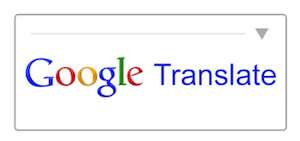We should have probably known this but as always as we didn’t SLAW are there to save us
AI Takes Over Google Translate
You may have missed, during the holidays, the news that Google has replaced the technology underlying its Google Translate tool, going from a “phrase-based” system to neural networks (i.e., AI).
The improved technology was announced in September, but it has only recently been made available in the publicly available Google Translate (and only for the most common language pairings).
Translation of legal information is an important issue in Canada. First, language barriers faced by different groups (Indigenous people, Francophone minorities outside Québec, Anglophones in Québec and immigrants) are a significant component of the access to justice problems.
But there are also more “technical” problems related with translations (or lack thereof) that affect the publishing and use of legal information:
- In New Brunswick, for example, if a court finds that a judgment “determines a question of law of interest or importance to the general public”, this case needs to be translated. Of course, this comes at a cost, which costs may have led – I’m told – to the non-publication of a quantity of significant cases. Refer to this excellent Slaw post from Ted Tjaden for more information.
- In Quebec, the judiciary is known to worry that significant cases with a potentially high precedential value that are issued by Quebec judges in non-civil law matters (e.g. criminal law) are all but ignored outside the province even when they advance the law and could help litigants there.
All that to say that we, as players of the justice system, should welcome any improvement in the quality of the machine-based translation. The improvements to Google Translate seem to be quite promising: According to Google, the performance of the new translation technology brings us very close to human quality translation:
Read full article by linking at the headline




